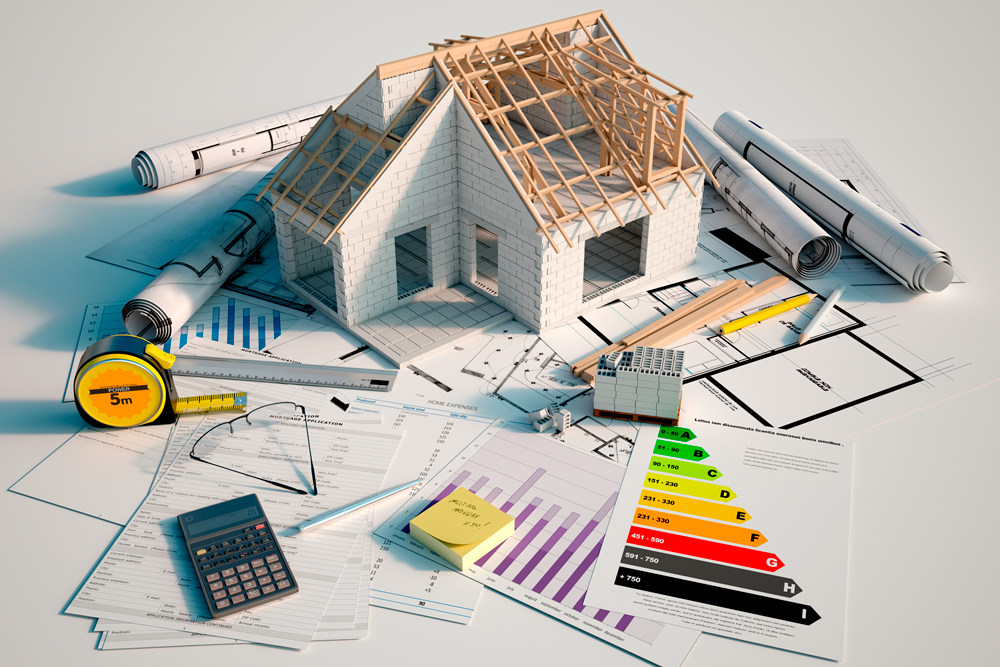
Energy Services Companies or ESCOs have been involved in designing and implementing efficiency measures in buildings since the eighties in North America, and the mid-nineties in Europe. Using Energy Performance Contracts (EPC) as the model to deliver guaranteed energy savings to building owners in the public and private sectors, they have been quite successful in providing an alternative to more traditional approaches to achieve energy savings.
Acting as integrators (as true Single Points of Contacts), they provide performance guarantees, combined with robust Service Level Guarantees on comfort and other KPIs. They often integrate a full maintenance and energy monitoring service with total warrantee, allowing them to successfully manage the overall building performance on long term contracts, ranging typically from 10 to 20 years, as seen in the public sector. This turns many EPCs into M-EPCs or Maintenance and Energy Performance Contracts.
Ambition levels with EPCs have however remained relatively low, with a strong focus on Return on Investment, using future (guaranteed) energy savings as the main or only source of financing of the initial investments. ESCOs were thus only remunerated for the energy efficiency investment outlays with part or all of the achieved energy savings. This has led to most EPC’s targeting anywhere between 20% and 40% annual energy savings. As such, ESCO financing has become a key factor of many ESCO contracts, even though it is really just an option, since customers can finance their EPC with own funds or via a traditional bank loan or investment fund. Since more aggressive climate goals are leading to increased ambition levels for energy renovation of buildings in general, and for EPC projects in particular, an increasing number of investments can no longer be funded through the energy savings.
StepUP, the renovation methodology developed in the European-funded project with the same name, has been designed for deep energy renovation by using continuous feedback loops and promoting an iterative deep energy renovation approach. This approach is based on data insights, which minimises performance gaps, reduces investment risks, minimises disruption and positively impacts energy costs. Plug & Play technology applied to modular wall and roof insulation panels allow to optimize the cost of building envelope renovation.
The StepUP renovation methodology is not only about optimizing and reducing renovation and maintenance costs, energy cost savings and increased building value, but it is also about providing the building owner with several other benefits, potentially enhancing the business case of the envisaged StepUP energy renovation.
With this in mind, we can identify different reasons why ESCOs can benefit from the StepUP renovation model, but also why there is an opportunity for StepUP partners to engage with ESCOs to design competitive solutions for deep energy renovation projects based on Energy Performance Contracting.
Firstly, the technical solutions provided by StepUP today, that may even be improved or enhanced in the future, provide ESCOs with a modular and to some extent packaged solution for certain energy renovations. StepUP provides Plug&Play technologies such as the Plug&Play Envelope system, a flexible heating and cooling solution, software tools and a platform for data collection, reducing significantly both investment costs and implementation periods, compared to traditional insultation works.
Secondly, maintenance can be more standardized and simplified and thus maintenance costs can be reduced. Quality of implementation can be better monitored, increasing the lifetime of the renovation works on the building envelope. When performance-based maintenance is being used, based on maintenance standards such as the NEN2767 developed in the Netherlands and also used in Belgium (applying condition scores to the building elements in scope), the possibility to guarantee a requested condition score during and at the end of the EPC contract, can be increased.
A key feature of any EPC is, of course, the ability to provide performance guarantees on the energy savings, reducing significantly or even eliminating the risk for underperformance. Using the StepUP solution, the design and performance of the energy saving measures become more standardized and more predictable. The well documented energy savings capabilities allow for more reliable savings estimates. The increasing number of projects using the same technologies will also increase the statistical data available on real savings, allowing for feedback loops to EPC solution designs, thus reducing the margin of error for ESCOs when they need to make commercial offers. Overall performance guarantees can improve.
Those ESCO’s that already use or plan to use smartEPC -an integrated EPC model originally designed in Belgium but available in other European countries- can benefit from the previously accomplished integration of the StepUP principles into smartEPC.This integration has been presented during StepUP’s webinar Smart Energy Performance Contracting in combination with innovative deep building renovation processes and technologies . Several features have been aligned making the adoption much faster, as is explained in StepUP’s other blogpost Can smarter Energy Performance Contracting (EPC) enhance the case for the StepUP renovation methodology?
ESCO’s face many challenges when designing and implementing more ambitious energy renovation solutions in buildings. Having at their disposal affordable, standardized, predictable and lower risk options is of great benefit. The StepUP solutions and approach certainly tick many boxes when selecting these options…!
 This project has received funding from the European Union’s Horizon 2020 research and innovation programme under grant agreement no. 847053.
This project has received funding from the European Union’s Horizon 2020 research and innovation programme under grant agreement no. 847053.
This website reflects only the author’s views. The European Climate, Infrastructure and Environment Executive Agency is not responsible for any use that may be made of the information it contains.
